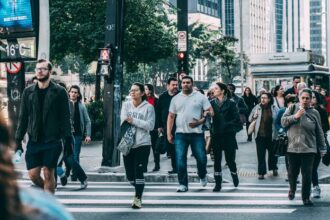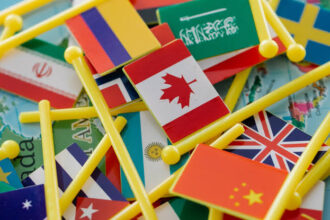By Prof Saleem Bashir Aminu, Mni
How does a leader lose an election before anyone votes? It happens when the public makes up its mind long in advance.
In Nigeria, many citizens reached their decision about 2027 by remembering how they felt between 2023 and 2025. People looked at their fuel receipts, market prices, rent, school fees, and the constant fear of insecurity. They listened to official promises, compared them with their daily reality, and stored a verdict in their hearts.
By the time the campaign season came, that verdict was already firm. The election day only recorded it.
The story began on inauguration day in May 2023, when the president announced that the fuel subsidy was gone. Economists had warned for years that the subsidy was wasteful and unfair. Still, what matters in politics is timing, sequence, and support for the most vulnerable. Overnight, transport costs climbed. Traders paid more to move goods. Workers paid more to get to their jobs. Many families saw their small savings vanish in a few weeks.
Terrorism Trial: Kanu Seeks to Call Wike, Uzodinma, Buratai, Sanwo-Olu, Others As Witnesses
The government later spoke about palliative measures and a shift to cheaper gas for vehicles, but the conversion plan, stations, and financing tools were not ready at the scale needed. For millions of people, the memory that stuck was simple. Life became more expensive first. Help came slowly, in small pockets, and not for long enough.
Soon after, exchange rate rules changed. Multiple windows were merged into one. On paper, this was a step toward transparency and a healthier market. In practice, it sent the naira down. Importers paid more for raw materials. Farmers and food vendors felt it in the cost of inputs, transport, and storage. Shops adjusted price tags upward. Once again, people did not debate macroeconomics. They measured their lives in bowls of garri, litres of petrol, and the balance left on their phones at the end of each day. When two big shocks arrive back to back without a soft landing, the political damage is deep. Even supporters who wanted reform felt that dignity was being asked of them without enough care for their struggle.
As 2024 rolled on, households wrestled with inflation that ate into every paycheck. Electricity became costlier for many customers as tariffs rose toward cost recovery. The official case for this move was to improve supply and reduce debts. The popular reading was different. People saw higher bills while still dealing with irregular power and the price of running generators. Labour unions called actions. Negotiations dragged on. The public story that reached the street was that government talked reform while citizens carried the pain. Where relief funds or wage deals came, they did not fully match the scale of the price surge. The gap between what was promised and what was felt became a wound that did not heal quickly.
Politics also lives or dies on security. In many parts of the country, families still feared kidnappings on highways, raids on rural communities, and violence that broke out without warning. The armed forces and police recorded some successes, yet the big picture did not calm nerves. News of attacks kept coming. People postponed travel, avoided certain roads, and sent prayers with their children. A leader can ask for patience on the economy if people feel safer at home and on the road. When both the pocket and the heart are under pressure, faith in leadership fades faster.
By Prof Saleem Bashir Aminu, Mni is a Lecturer at BUK















